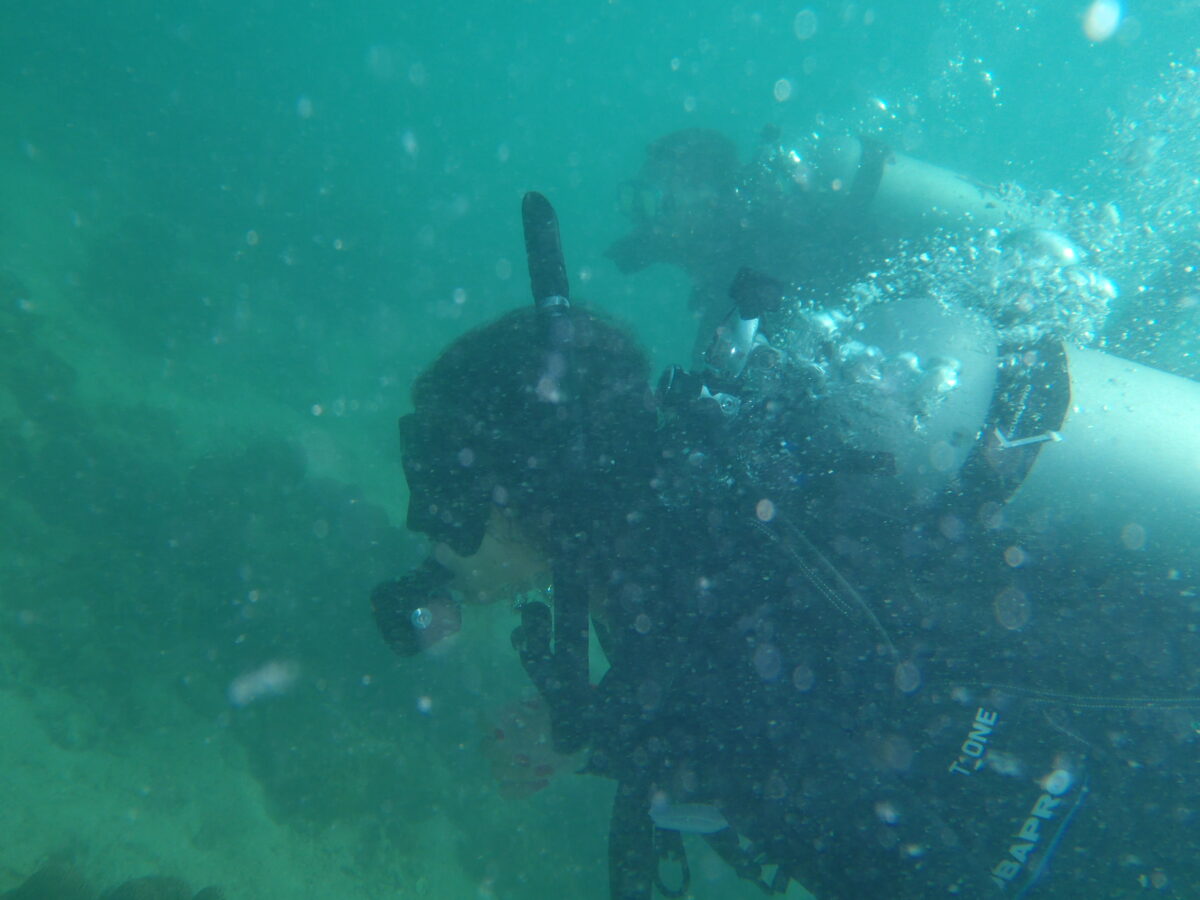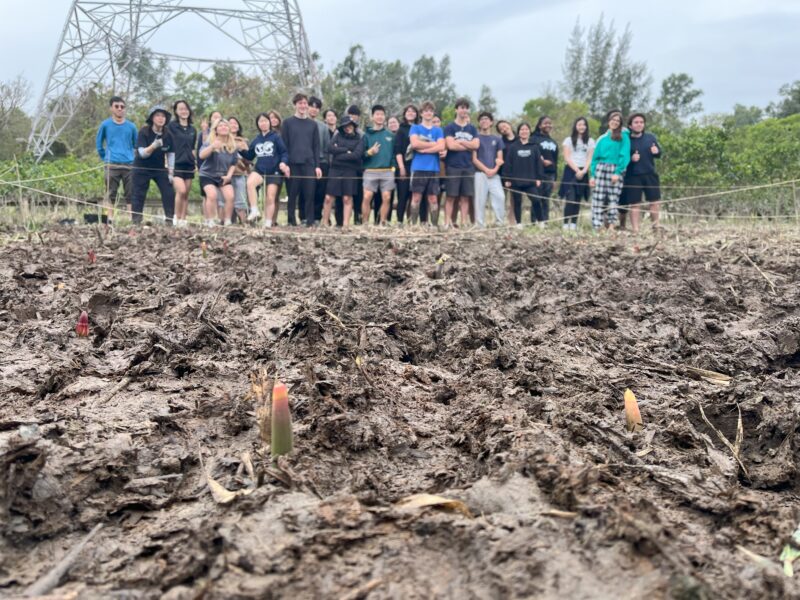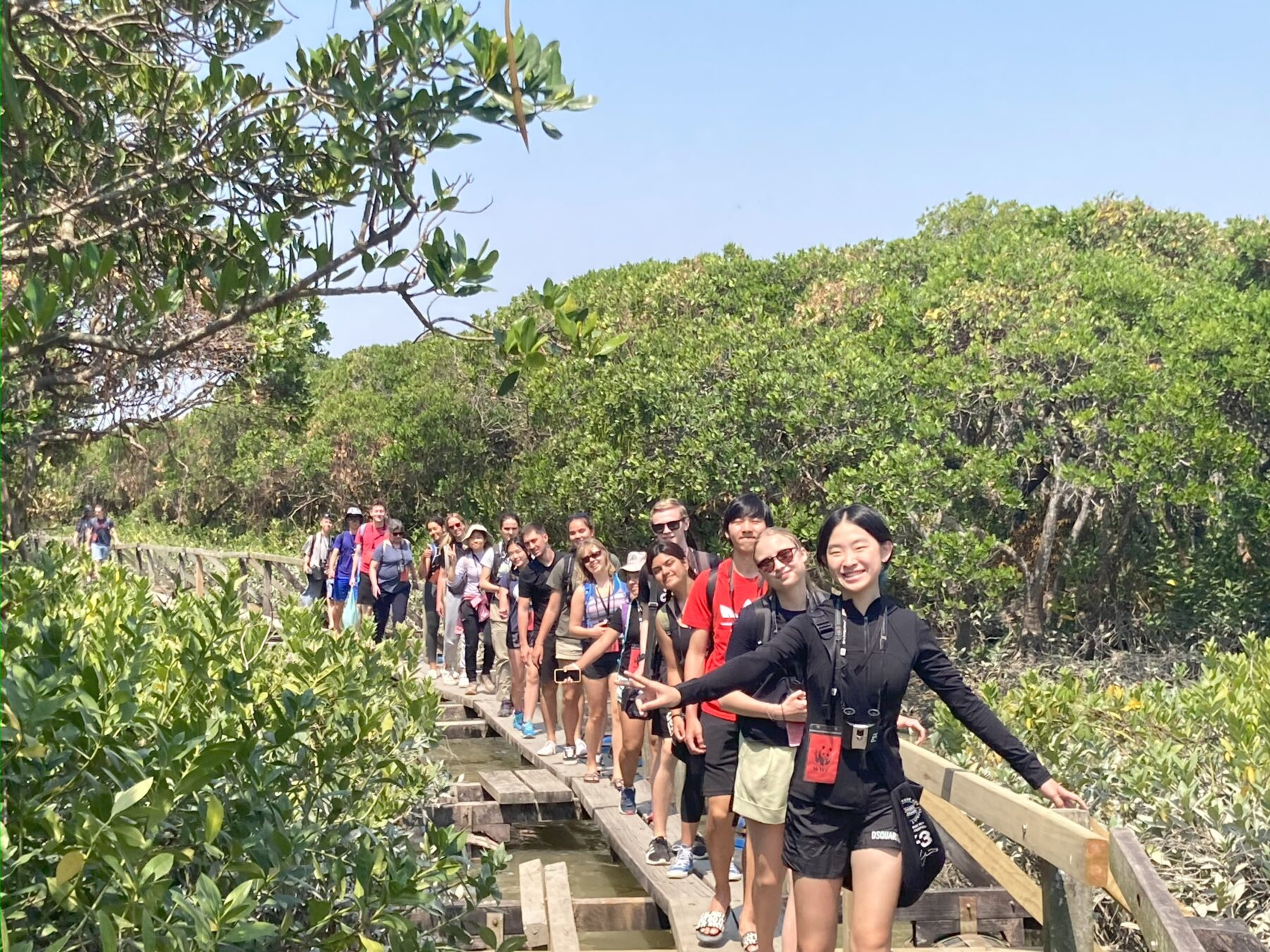
Introduction to Marine Sustainability (aka Coral Monitoring) Quan Cai
Details
The Marine Sustainability (aka Coral Monitoring) Quan Cai (QC) at Li Po Chun United World College aims to immerse students in the coastal environment of Hong Kong, allowing them to develop a greater understanding and appreciation of the values and threats of the marine biome both locally and globally. A further aim is to create and enhance long-term enthusiasm for marine and environmental conservation and action. We also collect and share data with established local and international environmental organisations. Students support coastal restoration projects (mangrove, oyster, seagrass) and interact with conservationists to further their knowledge, awareness, understanding, and commitment to sustainability.
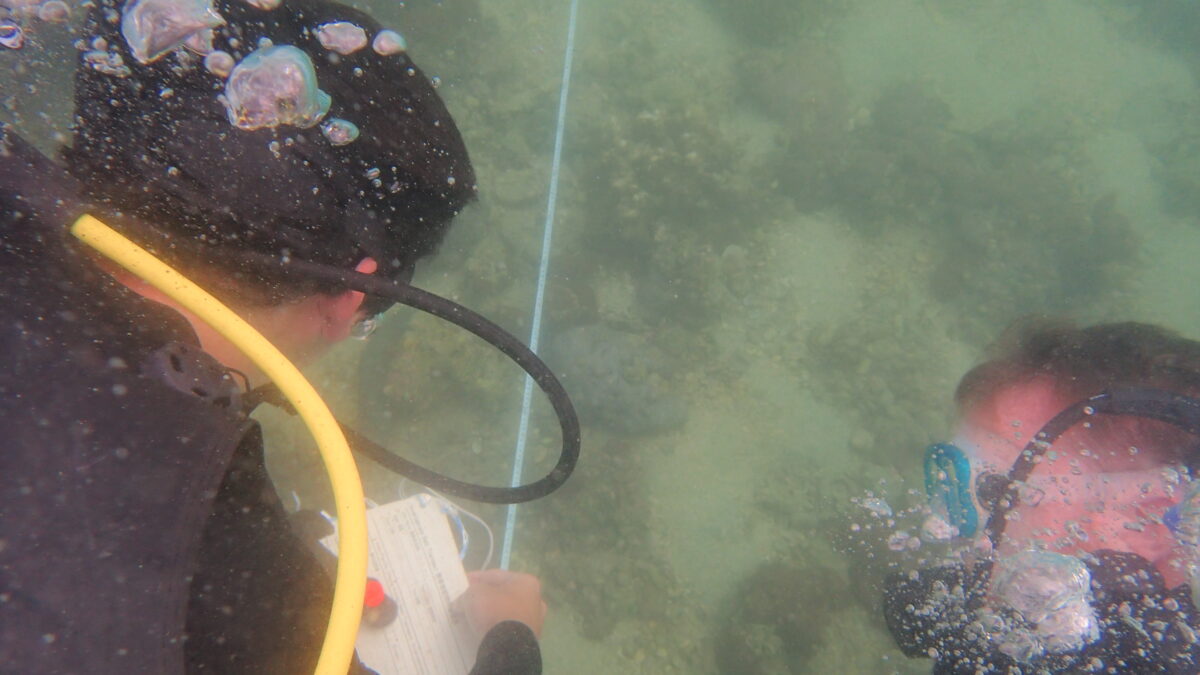
Students survey a transect line, here noting a sea cucumber and substrate.
The students are trained as PADI Open Water divers, then study the fish, invertebrates and substrate (including corals) that can be found in Hong Kong. They are able to identify Reefcheck (RC) “indicator species”, which serve as a good measure of the environmental conditions of the area, and learn how to conduct underwater surveys in different areas of Hong Kong. They also conduct Coralwatch (CW) surveys, a University of Queensland protocol which measures the health of corals and tracks bleaching. Data collected is recorded and submitted to official databases to support such organisations who work with local communities and advise on marine policies. This video captures this aspect of our service well. In addition, students receive training in PADI’s Dive Against Debris (DAD) to learn about and address marine pollution.
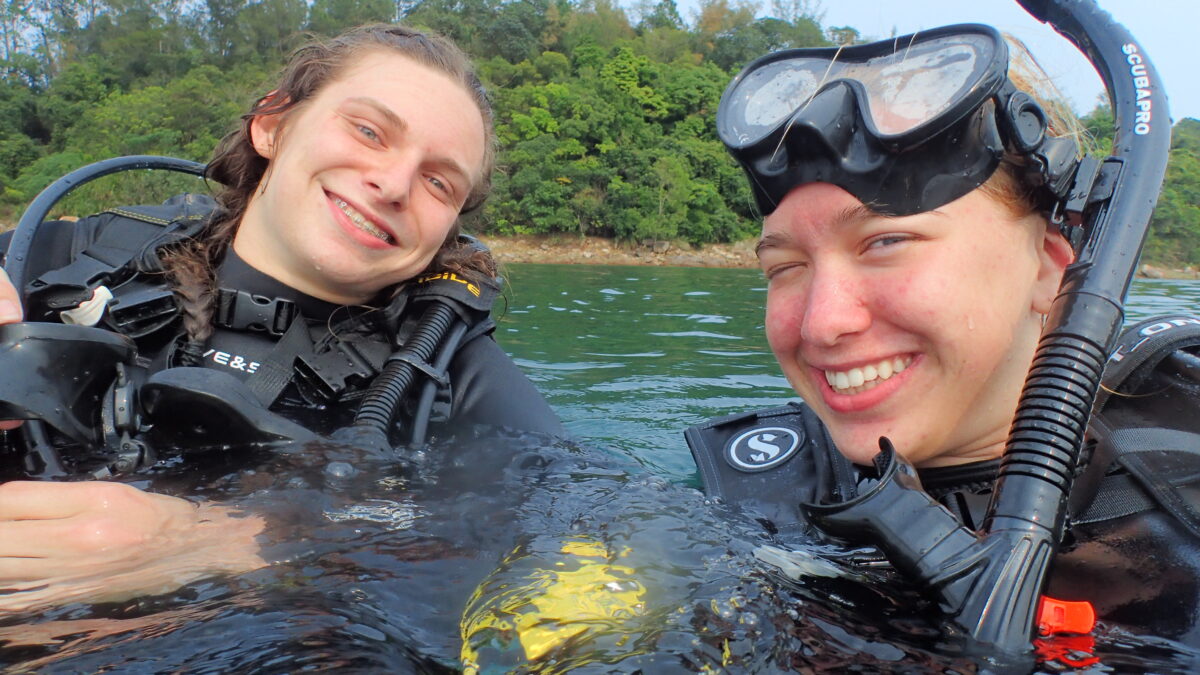
Students prepare to descend to the transect line
On our most recent dives, in April 2023, students received RC and CW survey training in Hoi Ha Wan Marine Park (HHW). A long-standing commitment to monitoring HHW continues after the disruption of the pandemic years. This project began in the 1990s by identifying and monitoring key coral communities for the WWF Marine Center and has continued using the standard RC & CW protocols to monitor eco-health in the park.
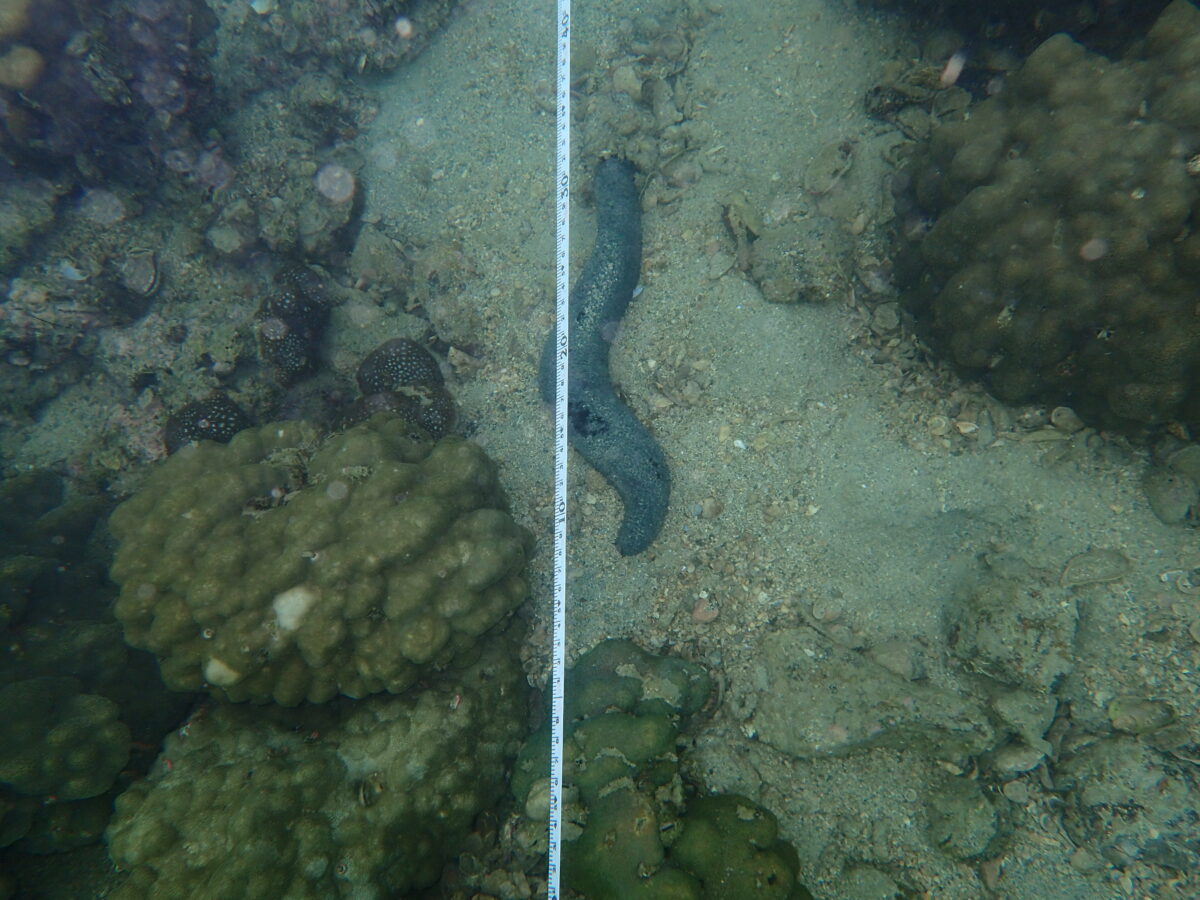
Sea cucumber on the transect line
Students reflected on their experiences from the experiences, saying:
“Collecting data (both under and over water) gives a great insight into the world we live in and the environment surrounding us…Seeing the world from under is so incredible and it makes me appreciate our environment even more.However, it also makes me think about how many people never experience this and thus may never understand the urgency in creating solutions to climate change… I will improve my ability and scope of spreading awareness and being aware of my own actions!”
Students move along the transect line
“From reviewing indicator species to conducting reef checks and coral watch in Hoi Ha Wan, I loved being able to monitor underwater conditions while having fun diving…Conservation work can be regarded as ‘uncool’ by some, but I easily find it equally enjoyable as long as I myself take an active role.”
“Learning to dive and doing coral watch, reef check gave me the opportunity to learn valuable thing about marine sustainability.”
“It was amazing to learn how to dive, what is involved, and how to ‘check’ the reef and the ecosystems that revolve around them. I also enjoyed learning about the marine ecosystems and being able to collect the reef data was a highlight.”
“I have thoroughly enjoyed exploring a part of the ocean that is initially invisible to most people, being to places that few have been to is really exciting. And even more – getting to share this experience with people from all over the world, making a change.”
“I enjoyed doing some mangrove data collection because it was a reason for me to leave the campus and be in nature”
Students are also involved in conservation projects around Hong Kong. In 2022-2023, we participated in CNN’s Call to Earth, and were grateful for expert advice from the Nature Conservancy’s (TNC’s) Felix Leung for the education he provided in helping us understand the importance of mangroves. We subsequently monitored mangrove stands on either side of the College, and have committed to doing this annually as a community. In addition, we harvested and planted mangroves during Project Week 2023 with the Hong Kong Wetlands Conservation Association (HKWCA), and, in November 2023, we will be working on The TNC’s oyster restoration project. We hope to add seagrass restoration into our list of projects in the near future and look forward to a guest speaker from the Hong Kong Seagrass Restoration Association (HKSR) visiting the College. The students also gain insights from other conservationist speakers who are experts in their fields and/or committed citizen scientists (such as Living Seas Hong Kong and Ghost Diving).
Clearly, students in Marine Sustainability are expected to make a major commitment to this two-year service. In addition to the activities already described above, in their first year, students deepen their practical and theoretical knowledge during both of our special educational weeks. During Hong Kong China Week, students will hike to survey for jellyfish, receive eco-education from WWF at Hoi Ha Wan Marine Park, go pink dolphin watching with University of Hong Kong researchers, participate in coasteering at Shek O, and walk deep into Mai Po Nature Reserve (wetlands). After a 3-year hiatus, we hope to return to the Philippines in March 2024 to improve dive skills, marine ID knowledge, buddy, teamwork and survey training, so that we can fully restart.
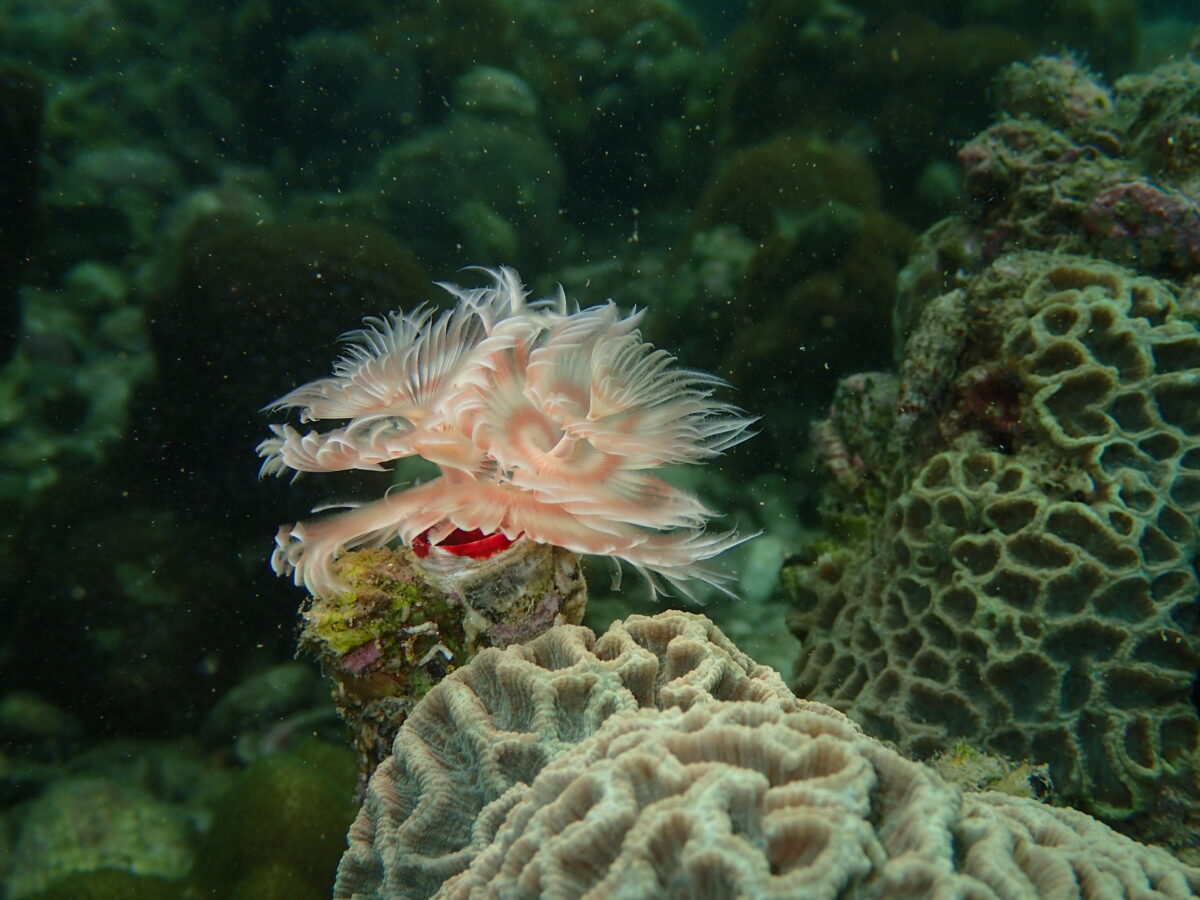
A delicate fan worm rests atop platygyra – a flagship coral species in Hong Kong.
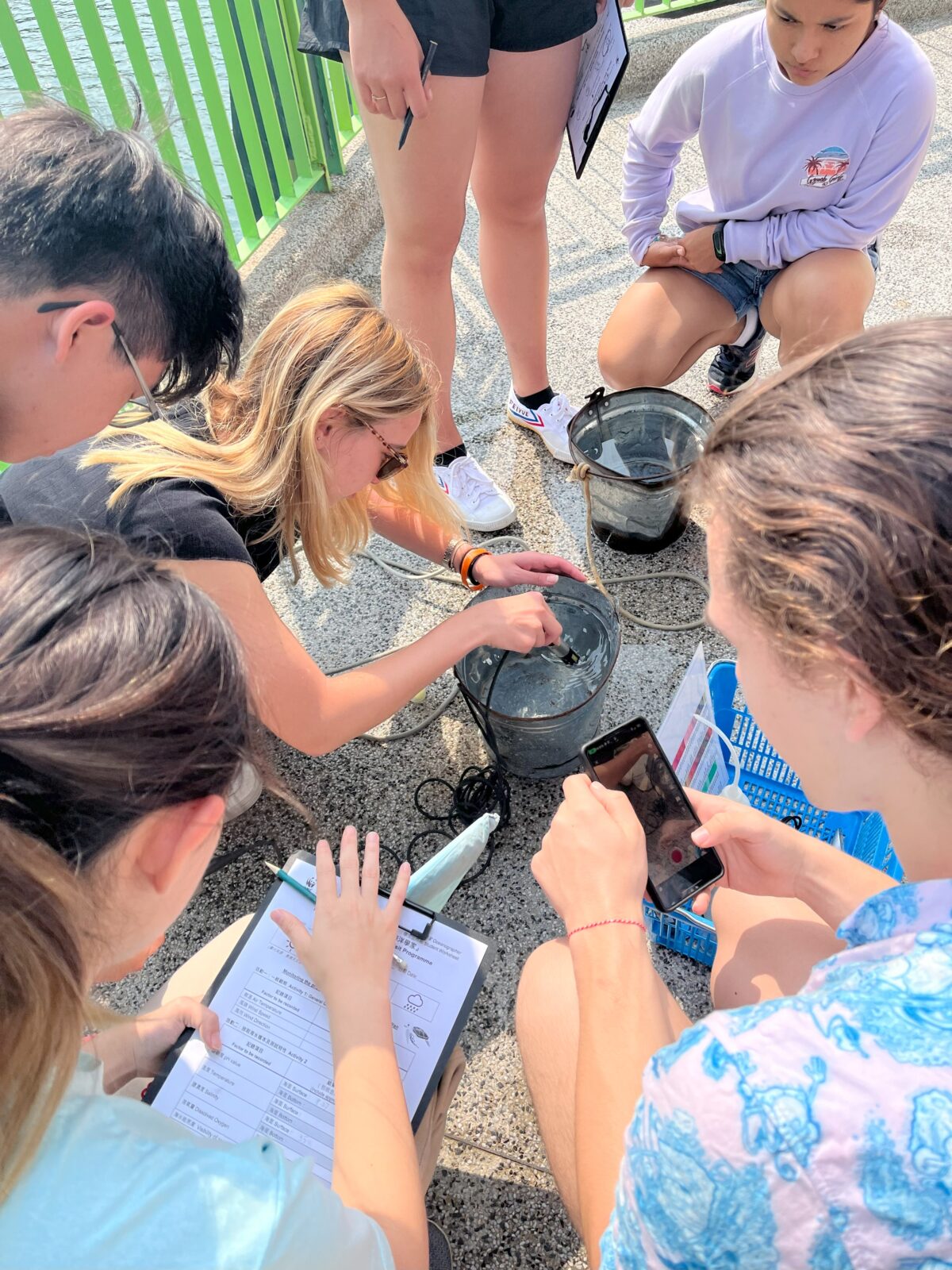
Students complete WWF’s Oceanographer course, collecting a variety of atmospheric and sea water data as well as doing plankton collection and observation.
All photographs courtesy of students and staff of Marine Sustainability QC

